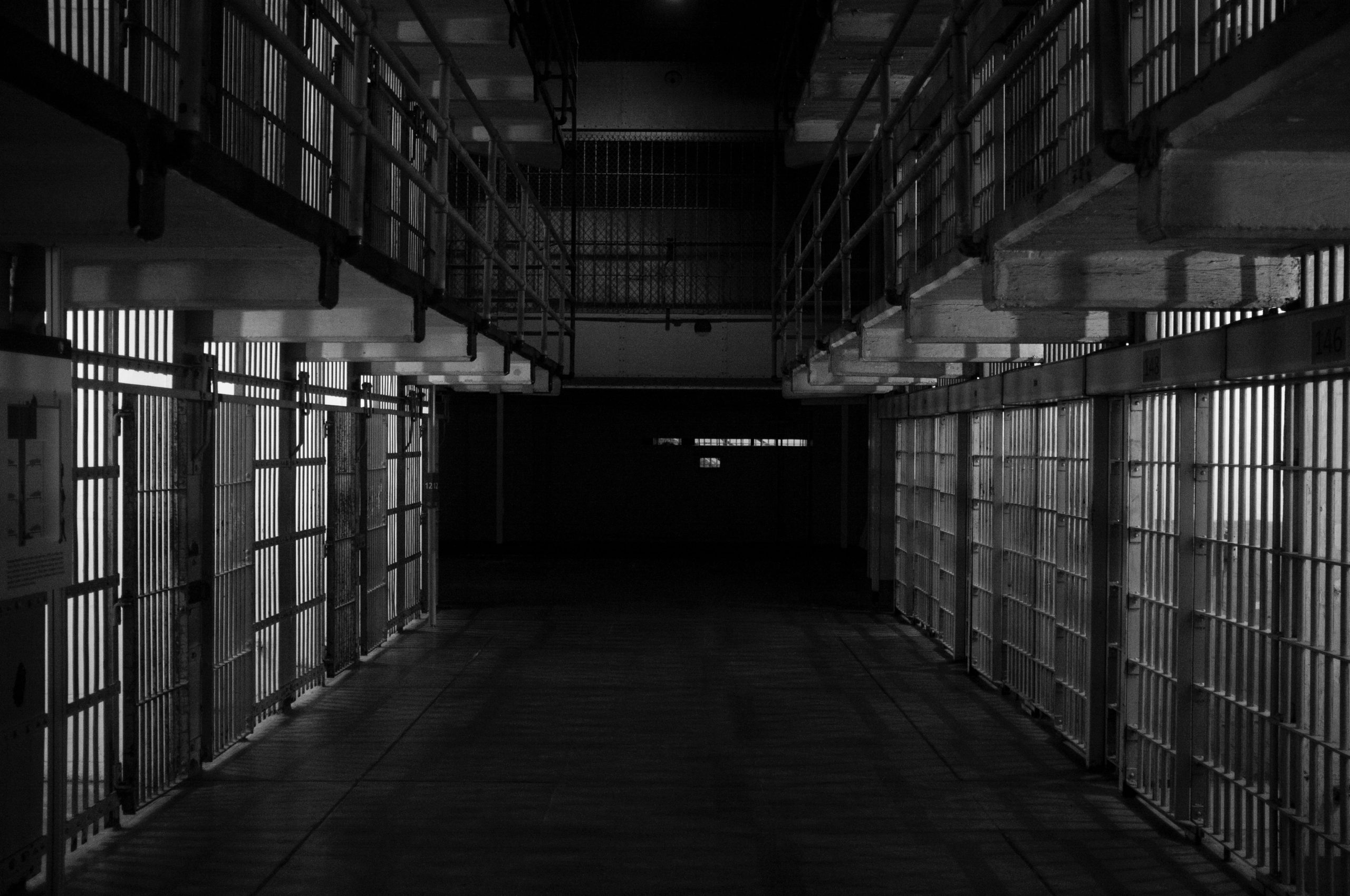
The Holiday Blues in Prison
Juan Carlos Riofrío
Photo by Emiliano Bar on Unsplash.
Holidays are not the same for everyone, not even in prison. No matter what the constitutional principle of equality says, holidays are not the same for everyone. For the wealthy, holidays present an opportunity to travel and relax with their loved ones. On the other hand, for those who struggle to bring in enough daily bread for their families, the holiday season carries an opportunity to work more and obtain extra income. Some people will enjoy the company and support of their family and friends; others, whether due to the pandemic or otherwise, will spend this time far away from them, alone. Some will enjoy a season of peace and celebrate personal triumphs while others will not. Some will be in good health while others suffer physical or mental illness.
There is a mental disorder known as the “holiday blues,” a complex psychological phenomenon that occurs on days that are supposed to be a time of joy and celebration but, for some, evoke feelings of loneliness, stress, and anxiety. Certainly, the worst of these days will afflict those who spend the holiday season in prison. An increase of depression rates can be expected in jail, when inmates compare the happy holidays of their life in freedom with their current situation. In some circumstances, particularly during the holidays when worries about money, loss of loved ones, isolation, social or familiar tensions arise, these feelings could cause disappointment, sadness, fatigue, or frustration. Inmates experience most of these problematic circumstances. It is worth remembering that, at least since 2000, suicide has consistently been the leading cause of death in local jails, making up roughly more than a third of all deaths. Although inmates must serve time for their crimes, prisons should not inflict special punishments on holidays for some inmates, as happens today.
Jeffrey Mark Deskovic, a prisoner who was wrongfully convicted in 1990 at the age of seventeen of raping, beating, and strangling a high school classmate, gives a detailed description of how holidays are in jail:
During the holidays, a day in prison was no different for me than every other day: routines, violence, staying alert, verbal abuse by guards, tolerance of abusive guards by their co-workers and the prison administration. For company, I had a variety of other victims of injustice: wrongfully convicted prisoners. . . . Of course there was no shortage of guilty men in prison on Christmas Day, both the repentant and the non. I hated living around real, cold-blooded prisoners over the holidays, but I had no choice. . . . It was extremely difficult to get on the prison phone: too many people wanted to use it, too many calls went on for an inconsiderately long time, too many people passed it on to their friends only. There just weren’t enough ways to phone home to your family because, in prison, they want you to be disconnected on Christmas. . . . Holiday meals in prison were downright terrible. . . . During the prison’s staff holiday party, while guards were “working” on state time, we would often be locked in our cells. Sometimes I would cry myself to sleep.
While some inmates will have the opportunity to talk with their families by phone, others will receive verbal abuse by guards. And cells will most likely be locked more hours than usual, because the prison administration should take time off to celebrate more during Christmas. As we shall see, in other prisons, guards will even allow some inmates to celebrate certain feasts, and not others, depending on their beliefs. Some of these treatments could trespass the principle of equality and non-discrimination, as well as the Eighth Amendment to the U.S. Constitution, which states that “[e]xcessive bail shall not be required . . . nor cruel and unusual punishments inflicted.”
To respect religious rights, some prisons authorities allow inmates to celebrate a number of feasts selected by the inmates, even with special meals. A milestone here was the approval of the Religious Land Use and Institutionalized Persons Act (RLUIPA) of 2000 which led to the amendment of several prison policies in the U.S. — in these matters, prison authorities have a certain level of autonomy which they can use to make their own regulations. For instance, the West Virginia Division of Corrections Policy Directive 511.00(F) provides that members of a specific faith group may request one special meal observance per year;1W. Va. Div. of Corr., Policy Directive 511.00(F) (May 1, 2014). This West Virginia Division of Corrections Policy Directive was discussed in Browning v. Seifert, where the District Court for the Northern District of West Virginia recommended granting some kosher meals on certain feasts and denied some special recipes asked by the inmates. Browning v. Seifert, No. 1:13-cv-23, 2015 U.S. Dist. LEXIS 35075, at 12–13 (N.D. W. Va. Feb. 11, 2015). for this purpose, all members of each religious group should agree which holiday will be celebrated each year and how the cost of the meal will be covered (for example, by paying for themselves or finding a donor).2See id. at *12–13, 17. The Pennsylvania Department of Corrections Policy DC-819 is written in more detail. Among other things, it stipulates for Muslims that, in order to participate in either the Eid-al-Fitr or Eid-al-Adha feasts, an inmate “shall have participated in Ramadan for the entire month and must pay the cost of the fast with a cash slip,” and that “[a]ny inmate who is in the RHU in Disciplinary Custody (DC) cannot participate in the either [sic] of the Ramadan feasts.”3See Peele v. Klemm, 664 F. App’x 127, 129 n. 1 (3d Cir. 2016) (explaining how Pennsylvania Department of Corrections Policy DC-819 and the RLUIPA apply in a US court). However, the same department denied a request by Christian inmates for permission to congregate for special feasts at Christmas and Easter4See Thompson v. Smeal, 513 F. App’x 170, 171 (3d Cir. 2013). because feasting was not mandated by Christian scripture.5Id. Under this policy, while some inmates deserve to celebrate their holidays, others — the majority — do not have access to the same privilege.
Although these cases are frequent in jails, only a few of them go to trial. Today, there are dozens of cases in lower courts where inmates demand the right to attend more religious feasts, supported by RLUIPA and the First Amendment. Most of these cases are dismissed, and the judges often hold that the constitutional establishment clause does not apply.
Nevertheless, I contend that religious rights are not the only justification for the right to attend feasts or celebrate holidays. In a separate article, I argued in favor of a general right to feast, which would give the same right to atheists and agnostics, as well as to believers who have some secular reason to celebrate.
Two Constitutional Principles at Stake
In these cases, two constitutional principles are at stake. The first, located in the Eighth Amendment, bans the infliction of any “cruel and unusual punishment.” To lock cells for more hours than usual on holidays seems to be an unusual punishment. There is even a hint of cruelty in doing this on those days when people can hope or expect, at least, to receive the same treatment as they would on an ordinary day.
Any action by the authorities that can cause depression on holidays without a solid justification should be considered unreasonable and unconstitutional…
Any action by the authorities that can cause depression on holidays without a solid justification should be considered unreasonable and unconstitutional – unreasonable, because jurists widely agree that the main purpose of prison is to rehabilitate criminals, and measures that cause an inmate’s depression will never bring this about; and, unconstitutional, because although courts have not yet acknowledged a constitutional Federal right to rehabilitation, they have recognized it in a negative way as the right to counteract the deteriorating effects of imprisonment – for example, granting inmates a limited right to psychiatric and psychological treatment. Unreasonable measures that foster depression are against this right.
The Supreme Court has outlined four elements that should be considered in determining the reasonableness of a prison regulation: a) whether there is a “valid, rational connection between the prison regulation and the legitimate governmental interest”; b) whether the inmate has an “alternative means of exercising the right” at issue; c) what burden the accommodation would impose on prison resources; and d) whether there is an “absence of ready alternatives” (p89-91). Obviously, special punishments on holidays do not pass the first requirement: they have no connection with any legitimate interest. Instead, to allow celebrations would seem to promote the goal of rehabilitation. Allowing some minimal opportunity to participate in communal feasts and communicate with family members would give prisoners a sense of belonging to a community and facilitate concern for others. And, as concerning the right to feast, there is no alternative between celebrating or not celebrating. Regarding the burden on prison resources, as was seen in analogous cases, the cost of holiday celebrations is usually undertaken by the inmates themselves or donors. Therefore, authorities only have to allow inmates a minimal possibility to celebrate their principal feasts in some way, on the basis of equal concern and respect.
The second constitutional principle at stake is precisely the principle of equality and non-discrimination. As mentioned, there is no equality on holiday celebrations, especially in prison. Only some inmates will have the possibility to talk by phone with their families or to celebrate with special meals on their feasts. The lack of equal treatment by the authorities is also fostered by the fact that in the United States, each prison regulates the possibility of phone calls, gifts, meals, and the number of possible celebrations, among other things. In some prisons, the possibility of communicating with the inmates’ families and of sending or receiving photos, newspapers, or gifts is restricted, as in Australia, where inmates’ mail can contain photos and newspaper clippings but not the whole newspaper, with a few other kinds of gifts forbidden. In certain other prisons, gifts are entirely forbidden. These restrictions make sense when they are adopted for security reasons; however, they are not reasonable for non-dangerous prisoners.
In any case, as a result of these policies, some of the ten million prisoners of the United States will have better holidays, others blue holidays, and others just a dark night in their cell.♦

Juan Carlos Riofrío is Visiting Associate Professor of Jurisprudence and Human Rights at Strathmore University (Kenya) and Full Professor at Hemisferios University (Ecuador). He is a Fellow of the Center for the Study of Law and Religion at Emory University (Georgia).
Recommended Citation
Riofrío, Juan Carlos. “The Holiday Blues in Prison.” Canopy Forum, January 27, 2022. https://canopyforum.org/2022/01/27/the-holiday-blues-in-prison/.

